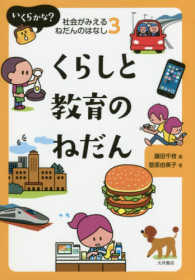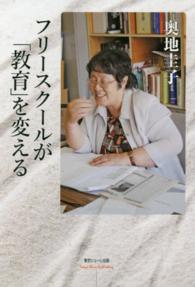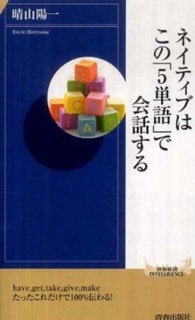- ホーム
- > 洋書
- > 英文書
- > Philosophy
基本説明
Transl. by Yamamoto Seisaku and Robert E. Carter.
Full Description
Watsuji Tetsuro's Rinrigaku (literally, the principles that allow us to live in friendly community) has been regarded as the definitive study of Japanese ethics for half a century. In Japan, ethics is the study of human being or ningen. As an ethical being, one negates individuality by abandoning one's independence from others. This selflessness is the true meaning of goodness.
Contents
Foreword
William R. LaFleur
Acknowledgments
Note to the Reader
Introduction
Robert E. Carter
Part I. Introductory Essays
Chapter One The Significance of Ethics as the Study of Ningen
Chapter Two The Method of Ethics as the Study of Ningen
Part II. The Fundamental Structure of Human Existence
Chapter Three The Everyday Fact as a Starting Point
Chapter Four Individual Moments Making Up Human Existence
Chapter Five The Element of the Whole in a Human Being
Chapter Six The Negative Structure of a Human Being
Chapter Seven The Fundamental Law of a Human Being (The Basic Principle of Ethics)
Part III. The Spatio-Temporal Structure of a Human Being
Chapter Eight Private and Public Existence
Chapter Nine The Spatiality of a Human Being
Chapter Ten The Temporality of Ningen Sonzai
Chapter Eleven The Mutual Relation of Spatiality and Temporality
Chapter Twelve The Acts of Ningen
Chapter Thirteen Trust and Truth
Chapter Fourteen The Good and Bad of Ningen: Guilt and Conscience
Appendix: Correspondence with Yuasa Yasuo
Interpretive Essay: Strands of Influence
Robert E. Carter
Notes
Glossary of Japanese Terms
Bibliography of Works About Watsuji
Indexes








